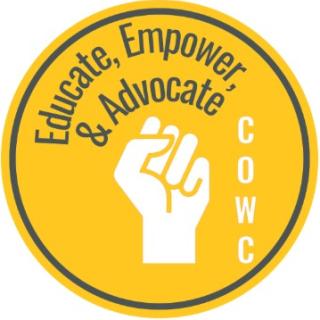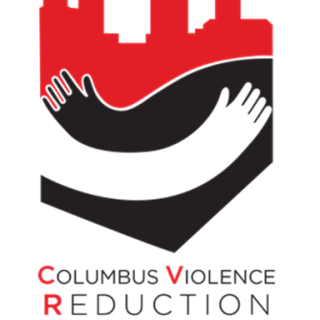Advertisement
I want to highlight that the article “Fighting the Klan could get you 15 years in prison” is inaccurate and needs to be corrected. There are many inflammatory and inaccurate comments. I have highlighted some below and also included more information and a fact sheet.
The bill itself doesn’t apply to only one organization – it impacts any group or person that deprives somebody of Constitutionally-protected rights while wearing a mask. So the bill applies to the KKK, Antifa, and any other group that intimidates other of their constitutional rights while wearing a mask. So saying that “would have to do is claim they were triggered by counter protestors” is false. The “injures, oppresses, threatens or intimidates” language comes directly from existing federal civil rights statutes dating from 1948.
The initial line saying that “Congress took the first steps to make Klansmen and neo-Nazis a special protected class of citizen with special protection when on July 8” is also false. This legislation doesn’t protect one group over another – it applies to all groups and people equally. Again, it’s already a crime to interfere with civil rights no matter who the victim or the perpetrator, and this new law would apply evenly to the KKK, Antifa, and whoever violates the statute. It is also ridiculous to say that a “pussy hat” or someone wearing a “costume” for street theatre would be punishable under this bill. There must be a Federal nexus for this proposed law to apply. So it’s not like anyone anywhere at any time potentially doing something criminal while wearing a mask will trigger this law. If it’s on Federal land, if they’re interfering with the right to vote, if they’re attacking Federal law enforcement, and they’re wearing disguises, then the law would apply.
Additionally, the bill name wouldn’t appear anywhere in statute. So for example if this becomes law and a prosecutor is reviewing potential criminal charges, only the bill language would be in the statute books. Legislators use the names of the people or organizations that inspired bills all the time, Kate’s Law being a recent example. The title derives from the reality that many recent instances of masked violence have involved antifa, and antifa members have publicly said they use masks to shield themselves from legal consequences (for example: “People put on the masks so that we can all become anonymous, right? And then, therefore, we are able to move more freely and do what we need to do, whether it is illegal or not,” Scott Crow, part of antifa movement, to CNN).
This bill doesn’t prevent anyone from protesting another group (ie. people protesting the KKK or neo-nazis), it ensures that people who are assembling – which is guaranteed under our First Amendment rights -- are able to do so in a peaceful and protected manner.
Please confirm that you have received this email.
-Alexia
Alexia Sikora
Press Secretary
Congressman Daniel M. Donovan, Jr. (NY-11)
Office: (202) 225-3371
I want to highlight that the article “Fighting the Klan could get you 15 years in prison” is inaccurate and needs to be corrected. There are many inflammatory and inaccurate comments. I have highlighted some below and also included more information and a fact sheet.
The bill itself doesn’t apply to only one organization – it impacts any group or person that deprives somebody of Constitutionally-protected rights while wearing a mask. So the bill applies to the KKK, Antifa, and any other group that intimidates other of their constitutional rights while wearing a mask. So saying that “would have to do is claim they were triggered by counter protestors” is false. The “injures, oppresses, threatens or intimidates” language comes directly from existing federal civil rights statutes dating from 1948.
The initial line saying that “Congress took the first steps to make Klansmen and neo-Nazis a special protected class of citizen with special protection when on July 8” is also false. This legislation doesn’t protect one group over another – it applies to all groups and people equally. Again, it’s already a crime to interfere with civil rights no matter who the victim or the perpetrator, and this new law would apply evenly to the KKK, Antifa, and whoever violates the statute. It is also ridiculous to say that a “pussy hat” or someone wearing a “costume” for street theatre would be punishable under this bill. There must be a Federal nexus for this proposed law to apply. So it’s not like anyone anywhere at any time potentially doing something criminal while wearing a mask will trigger this law. If it’s on Federal land, if they’re interfering with the right to vote, if they’re attacking Federal law enforcement, and they’re wearing disguises, then the law would apply.
Additionally, the bill name wouldn’t appear anywhere in statute. So for example if this becomes law and a prosecutor is reviewing potential criminal charges, only the bill language would be in the statute books. Legislators use the names of the people or organizations that inspired bills all the time, Kate’s Law being a recent example. The title derives from the reality that many recent instances of masked violence have involved antifa, and antifa members have publicly said they use masks to shield themselves from legal consequences (for example: “People put on the masks so that we can all become anonymous, right? And then, therefore, we are able to move more freely and do what we need to do, whether it is illegal or not,” Scott Crow, part of antifa movement, to CNN).
This bill doesn’t prevent anyone from protesting another group (ie. people protesting the KKK or neo-nazis), it ensures that people who are assembling – which is guaranteed under our First Amendment rights -- are able to do so in a peaceful and protected manner.
Please confirm that you have received this email.
-Alexia
Alexia Sikora
Press Secretary
Congressman Daniel M. Donovan, Jr. (NY-11)
Office: (202) 225-3371



